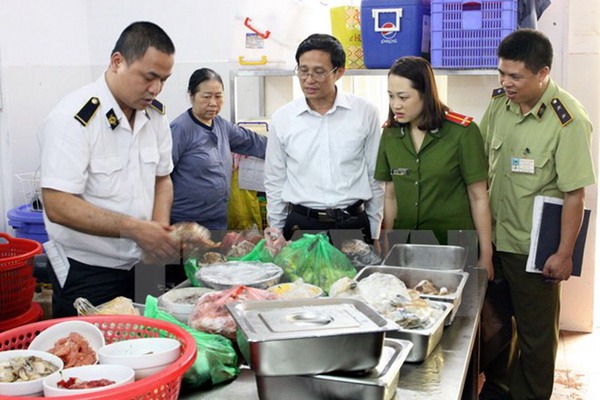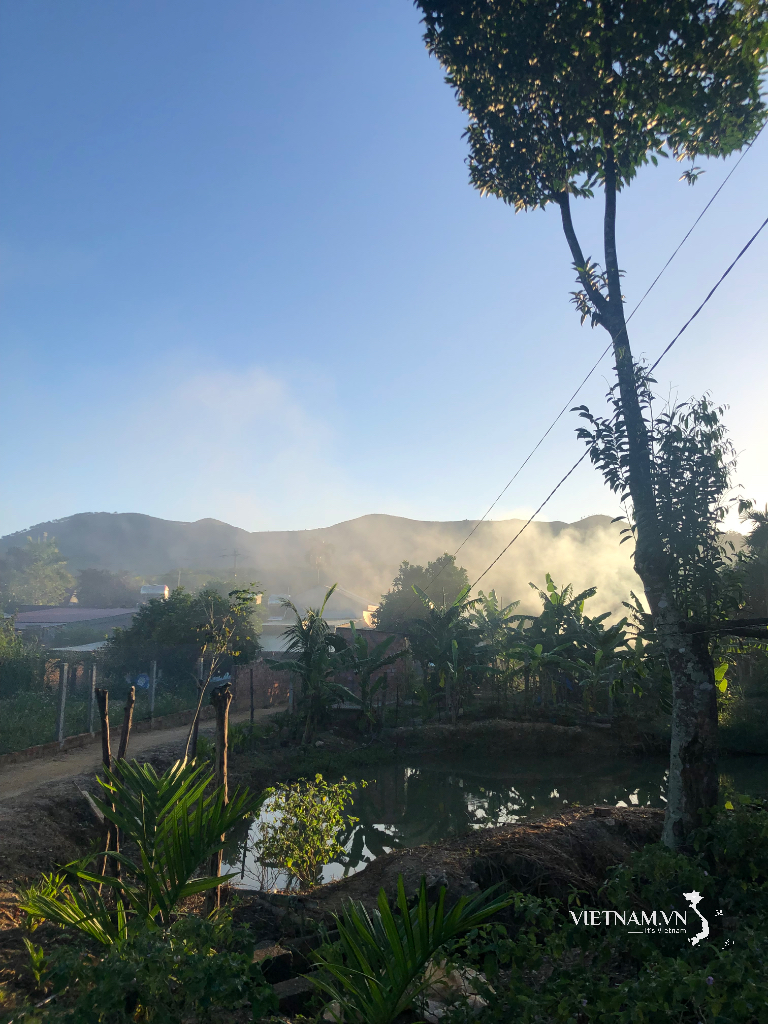With the aim of protecting public health, the government has issued regulations imposing strict penalties for violations in the food service industry.
With the aim of protecting public health, the government has issued regulations imposing strict penalties for violations in the food service industry.
These regulations not only help prevent food contamination incidents but also provide an important legal basis for addressing actions that endanger consumer health.
 |
| Authorities inspect a food business. |
According to Government Decree No. 115/2018/ND-CP on administrative penalties for violations in the field of food safety, violations in food service businesses, especially those involving ready-made meal processing facilities, collective kitchens, restaurants, and food stalls, will be severely punished.
Common violations include: using unsanitary equipment and utensils for food processing and storage, failing to adhere to hygiene procedures during processing, using substandard water sources, and not implementing measures to prevent cross-contamination between raw and processed foods.
Violations such as displaying or storing food on unsanitary equipment or utensils will be fined from 1,000,000 VND to 3,000,000 VND.
Establishments will also be fined if they do not have sufficient equipment to process and store raw and processed foods separately, or if they allow insects or pests to enter the processing area.
Establishments that fail to implement or improperly implement the three-step food inspection process or food sample retention regulations will also be penalized. Fines range from 3,000,000 VND to 5,000,000 VND depending on the severity of the violation.
According to the regulations, establishments that do not comply with regulations regarding food transportation and storage, or that lack handwashing facilities and toilets, will also be fined at the same rate.
Of particular concern, establishments employing food handlers without certified food safety training will face fines ranging from 5,000,000 VND to 7,000,000 VND.
More serious violations, such as using water that does not meet technical standards for food processing or failing to collect and treat waste in the processing area, may be subject to fines ranging from 7,000,000 VND to 10,000,000 VND.
Establishments employing food processors with infectious diseases such as cholera, dysentery, typhoid, hepatitis A and E, or tuberculosis will be fined between 10,000,000 and 15,000,000 VND. This is the highest penalty for this offense, aimed at protecting consumers' health from the risk of foodborne infections.
In addition to fines, violating establishments may also have their production, processing, or food supply operations suspended for 1 to 3 months, especially for violations related to employing staff with infectious diseases or failing to ensure food safety and hygiene.
Importantly, the penalties in this Decree clearly differentiate between individuals and organizations. For organizations, the penalty will be double that for individuals.
This means that businesses, restaurants, eateries, and food service organizations could face very large fines if violations occur.
The maximum fine for individuals violating the regulations is VND 100,000,000 and for organizations is VND 200,000,000. However, if this fine is still less than seven times the value of the infringing food products, the maximum fine will be applied at seven times the value of the infringing food products.
Food service establishments need to pay attention to complying with regulations on food processing and preservation, ensuring hygiene and safety throughout the process of serving customers.
In particular, employing staff with food safety knowledge, implementing a three-step food inspection process, and maintaining a clean environment are crucial factors in helping establishments avoid penalties and ensure public health.
Complying with food safety regulations not only helps businesses avoid penalties but is also a responsibility to consumers and society. Therefore, each establishment needs to actively learn about and correctly implement regulations to operate sustainably and ensure public health and safety.
Strict penalties for violations in the field of food safety are necessary to raise awareness among businesses and protect consumer health.
Food service establishments need to pay special attention to complying with food hygiene regulations, the three-step food inspection process, and safe processing procedures to avoid serious consequences from these violations.
Source: https://baodautu.vn/xu-phat-vi-pham-an-toan-thuc-pham-cac-quy-dinh-can-biet-d241250.html




![[Photo] President Luong Cuong receives Speaker of the Jordanian House of Representatives Mazen Turki El Qadi](/_next/image?url=https%3A%2F%2Fvphoto.vietnam.vn%2Fthumb%2F1200x675%2Fvietnam%2Fresource%2FIMAGE%2F2026%2F02%2F03%2F1770112220330_ndo_br_1-3704-jpg.webp&w=3840&q=75)






























































![[Photo] Prime Minister Pham Minh Chinh receives Philipp Rösler, Chairman of the Switzerland-Vietnam Economic Forum.](/_next/image?url=https%3A%2F%2Fvphoto.vietnam.vn%2Fthumb%2F402x226%2Fvietnam%2Fresource%2FIMAGE%2F2026%2F02%2F03%2F1770121222295_ndo_br_dsc-8709-jpg.webp&w=3840&q=75)




























Comment (0)